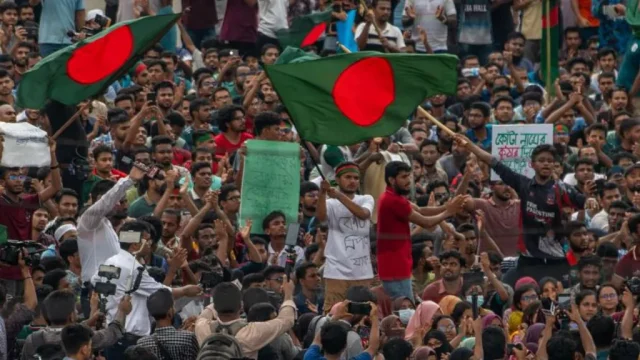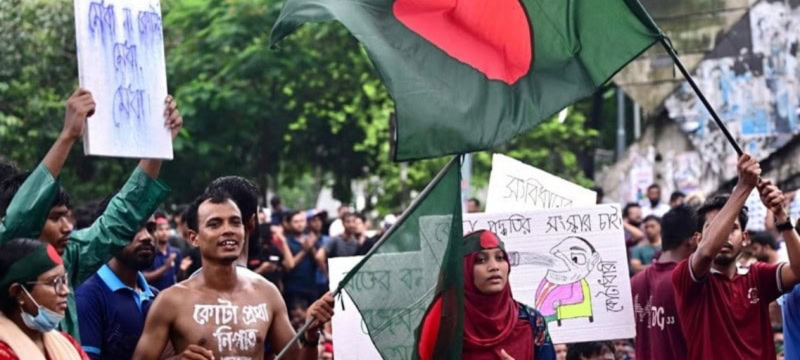Thousands of university students in Bangladesh are protesting against a government job recruitment system that they claim favors children of war heroes and certain privileged groups. They argue that the system is discriminatory and are advocating for job placements to be based solely on merit. One-third of positions are reserved for children of those who fought for Bangladesh’s independence in 1971, with additional quotas for women, ethnic minorities, and the disabled.
Critics assert that the system unfairly benefits supporters of Prime Minister Sheikh Hasina’s government, who secured her fourth consecutive election victory in January. Sheikh Hasina is the daughter of Bangladesh’s founding leader, Sheikh Mujibur Rahman.
Read more: Bangladesh Faces Severe Monsoon Floods, Homes Submerged In Water
The protests, known as the Bangla Blockade, have included roadblocks in Dhaka and other major cities, causing significant traffic disruptions. Demonstrators have also obstructed railway services by placing logs on tracks in Dhaka, affecting train routes to northern regions.
Although Bangladesh’s highest court temporarily suspended the recruitment system recently, protests are expected to persist until it is permanently abolished. The system had been reinstated by another court last month after being suspended since 2018 due to earlier waves of protests.
“We will not return to classrooms until our demand is met,” said protest leader Rasel Ahmed to news agency, underscoring the determination of the demonstrators to see their demands fulfilled.

“One protester told Bangla News that their demand is not to abolish the system but to reform the quota. Another student expressed determination to continue protesting until a permanent solution is achieved.
Government jobs in Bangladesh are highly sought after for their lucrative salaries. More than half of these positions, totaling hundreds of thousands, are reserved for specific groups.
Earlier this month, Prime Minister Hasina criticized the protests, stating that students were wasting their time and that there was no justification for the anti-quota movement.
Bangladesh, once among the world’s poorest nations, has now become one of the fastest-growing economies in Asia. Its per capita income has tripled over the past decade, and the World Bank estimates that over 25 million people have risen out of poverty in the last two decades.
However, the country faced economic challenges starting in mid-2022 due to the pandemic and global economic slowdown.”









